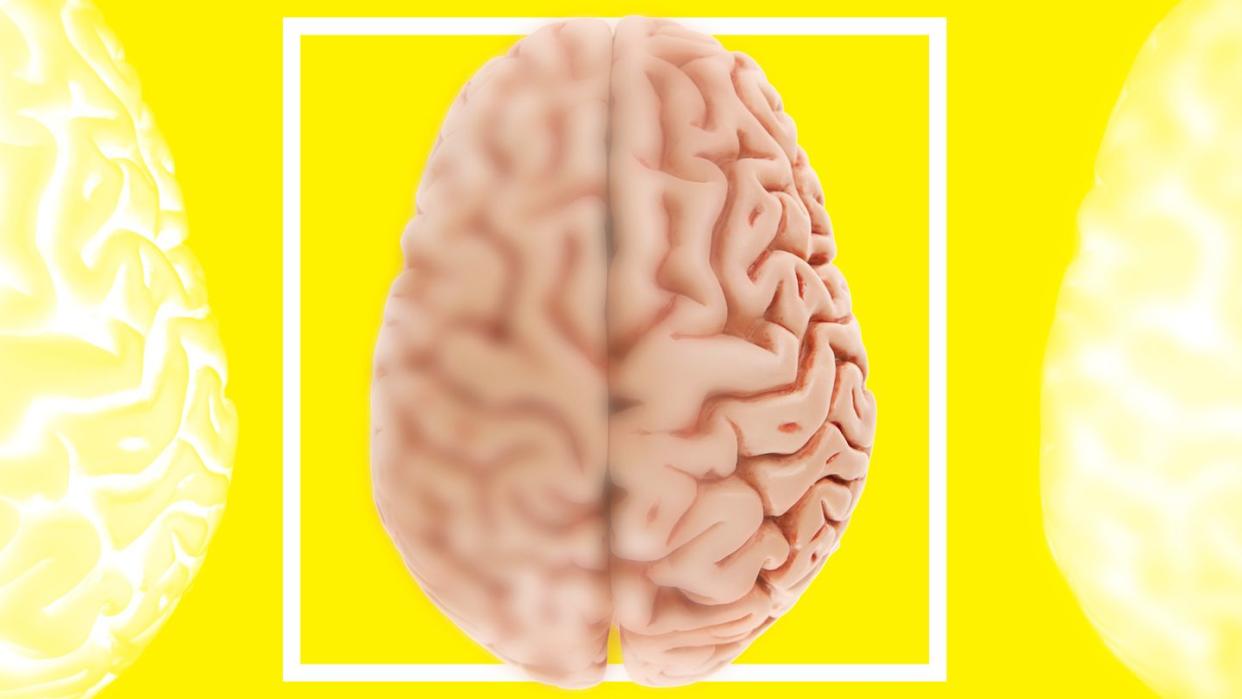Finally, Some Good News About Alzheimer's

ALZHEIMER’S DISEASE HAS been medicine’s own brainteaser. It’s stumped doctors and scientists who, for decades, have been struggling with where it came from, how it progresses, and how to treat it.
“When I was a new investigator, I got a negative result in a pilot study, and one of my co investigators said, ‘Congratulations, now you’re a real Alzheimer’s researcher!’ ” recalls Heather E. Whitson, M.D., co director of the Duke/University of North Carolina Alzheimer’s Disease Research Center.
But recent scientific leaps have resulted in major advances in Alzheimer’s prevention, detection, and treatment success. “Now it feels like big breakthroughs are really in reach,” says Dr. Whitson. These new developments are aiming to knock the disease out of its spot as the seventh leading cause of death in the U. S. and a huge cause of worry, fear, and financial strain. In short, there’s a lot to be optimistic about in all areas of building stronger, more resilient brains.
Body-Brain Prevention
NEARLY 40 PERCENT of Alzheimer’s and dementia cases in the U. S. are associated with eight risk factors, according to a study in JAMA Neurology. Two of the biggest ones: midlife obesity and physical inactivity.
Being overweight ups your risk of high blood pressure and diabetes, two conditions associated with cognitive decline later in life. Plus, people with extra weight tend to have more inflammation. Elevated levels of inflammation may create a more suitable environment for amyloid plaques and tau tangles to multiply in the brain, says Dr. Whitson. These clusters of proteins have the power to wipe out neurons and mess with the brain’s communication channels, which can lead to memory loss and personality shifts.
Physical activity not only keeps blood pressure, diabetes, and inflammation in check, but it can also build and strengthen neural connections in the brain. (Exercise pushes more blood to the brain and fortifies blood vessels.) When you work out, the body and brain also produce BDNF, a protein that spurs the creation of new neurons and increases the development of synapses, the links between neurons that allow them to communicate, says Dereck Salisbury, Ph.D., who studies the connection between exercise and Alzheimer’s at the University of Minnesota.
Right now, there’s no magic exercise prescription—just aim to get moderate-intensity bouts of both aerobic exercise (150 minutes) and strength training (two sessions that hit most muscle groups, especially if you’re losing weight rapidly on GLP-1 inhibitor drugs) each week.
Early Early Detection
ONE REASON ALZHEIMER’S has been such a medical puzzle: It’s been hard to get ahead of the disease. The brain changes that ultimately lead to Alzheimer’s can start ten or more years before symptoms ever appear. So by the time someone sees their doctor for memory issues, damage has accumulated. Spinal taps and PET scans help confirm diagnoses, but these procedures can be invasive and expensive—and are only done after symptoms show up.
The latest innovative blood tests can help change all that. These tests measure biomarkers that correspond to amyloid and tau proteins in the brain. If the blood biomarkers are super elevated, that indicates a buildup of proteins. These experimental tests are being used to help quickly diagnose the disease. “A single, simple blood test can give us the same information and make diagnosis more affordable and accessible, since many areas don’t even have access to expensive technologies like spinal taps,” says Randall J. Bateman, M.D., a professor at Washington University School of Medicine in St.Louis whose blood test was found to be around 96 percent accurate at diagnosing Alzheimer’s.
Researchers are still trying to nail down how this test can aid in prevention. (Not everyone with elevated levels of plaques, for example, will go on to develop Alzheimer’s.) But Dr. Bateman says he’s hopeful that one day these tests—still a number of years away from your doctor’s office—could be part of a routine physical: check your blood pressure, your cholesterol, and what’s happening in your brain. Other potential early-detection innovations are under investigation, Dr. Whitson says, including retinal scans, voice analysis, and digital evaluation of how we interact with our phones.
Emerging Precision Therapies
ALZHEIMER'S TREATMENT HAS been fraught. Some drugs that seem like they’ll be effective turn out to disappoint. That’s why docs are excited about Leqembi (lecanemab), and Kisunla (donanemab), which directly reduce amyloid plaques in the brain and slow the pace of cognitive decline from Alzheimer’s. “Previous drugs were mostly focused on just generally boosting neuron health, whereas these new ones are more targeted,” says Dr. Whitson. A report from this year found 164 active trials and 127 unique treatments in the pipeline, including vaccines. But the results don’t have to be in for us to start taking good care of our brains now.
What Gums Up Your Thinking:
A Memory Loss Glossary
Dementia
A general term for symptoms that include a decline in memory, reasoning, and other cognitive skills.
Alzheimer's Disease
A type of dementia in which an abnormal number of plaques and tangles accumulate in the brain; this buildup is thought to destroy and block communication between brain cells, which can bring about memory loss, personality changes, and trouble doing daily tasks.
Plaques
Deposits of beta-amyloid protein that accumulate in the spaces between nerve cells.
Tangles
Twisted fibers of tau proteins that build up inside the brain cell.
This story originally appeared in the July/August 2024 issue of Men's Health.
SUBSCRIBE
You Might Also Like
